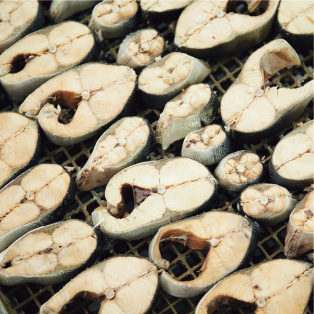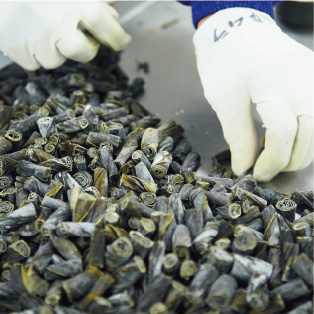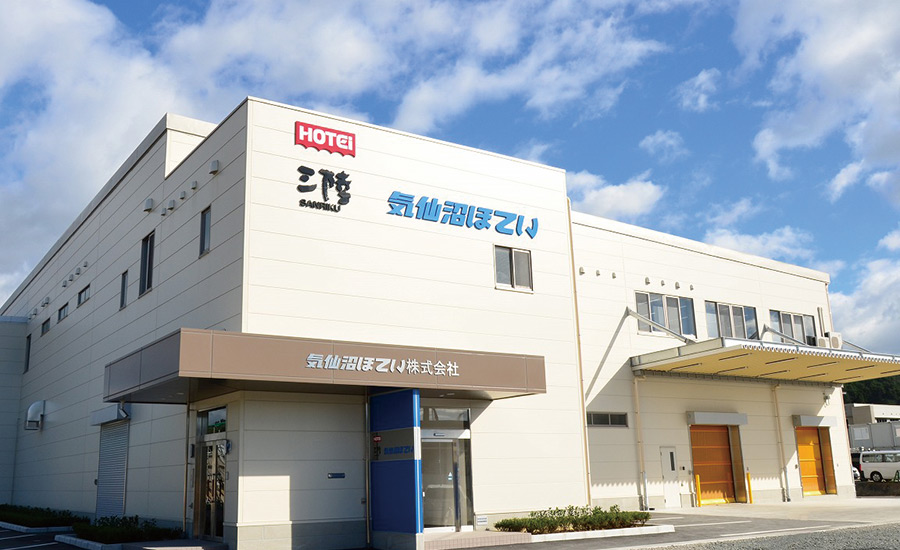
Kesennuma Hotei
Co.,Ltd.
988-0003 1 Chome-43-1 Honhamacho, Kesennuma, Miyagi
President and CEO: Tatsuya Yamamoto
Advisor: Hiroshi Kumagai (Vice Chairman)
TEL:+81-(0)226-22-5300
FAX:+81-(0)226-24-2184
e-mail:kesennuma@hoteifoods.co.jp
HP:http://www.kesennumahotei.co.jp/
Have fun trying a variety of delicacies
Kesennuma Hotei provides sharks fin soup that uses sharks fin produced in Kesennuma as well as various kinds of canned foods and “boil-in-the-bag” food items. The company expects to further widen its product line-up.
Taste and materials
The company produces a variety of sharks fin soups as well as steamed egg hotchpotch and rice bowl toppings that are contained in “boil-in-the-bag” packets, and canned food items. They are all quick and easy to prepare.
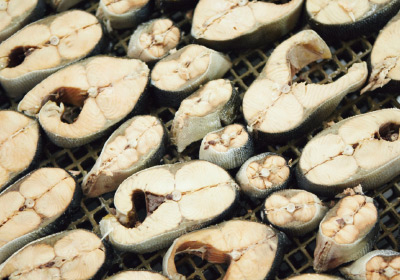
Equipment
The company produces various kinds of food items in its own factory in kesennuma.
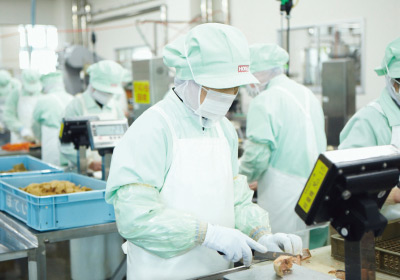
Craftsmanship
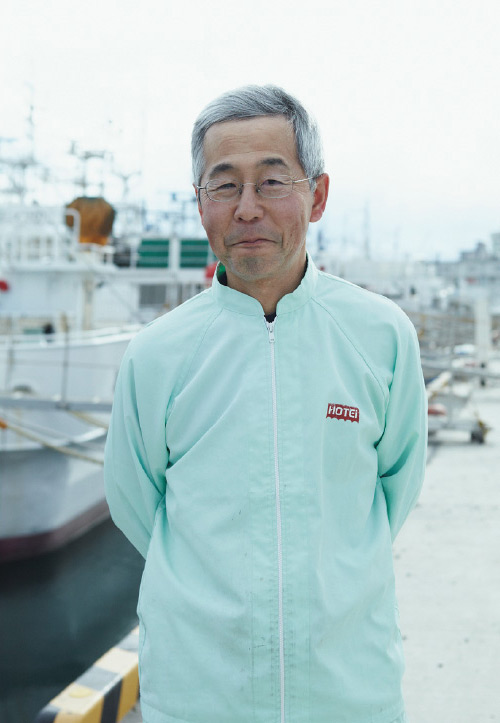
I want to nurture deliciousness. I want to nurture passion.
Kesennuma Hotei Co., Ltd. Manufacturing Department, Deputy Director Takehiko Ogata (at the time)
Originally from a landlocked prefecture, But now, Kesennuma is home.
In front of the reception room I was guided to, there was a line-up of various products. Kesennuma Hotei Co., Ltd. is a company that specializes in a variety of flavors of shark fin soup made exclusively from Kesennuma-produced shark fins, the largest producer in Japan. In addition to this, they also produce retort products such as chawanmushi (steamed egg custard) and bowl dish toppings, as well as canned products, which are sold not only in the Tohoku region but also in department stores in the Kanto region.
Established in 2015, this company celebrated its 30th anniversary. Originally founded as Kesennuma Food Co., Ltd. in 1953, it underwent a merger with a group company and became Kesennuma Hotei Co., Ltd. in 1984.
Takehiko Ogata, the Deputy Director of the Manufacturing Department, was born in Utsunomiya City, Tochigi Prefecture. After spending his high school days in his hometown, he enrolled in the Faculty of Fisheries at Kitasato University. Although Tochigi is known as a “landlocked prefecture,” Ogata laughs, stating that he had always been an avid fan of fishing, making his pursuit of a career in fisheries a natural choice.
He spent his first year of university life at the Sagamihara Campus in Kanagawa Prefecture, and from his second year until graduation, he studied at the Sanriku Campus in Oofunato City, Iwate Prefecture. Upon graduation, he joined Kesennuma Hotei Co., Ltd. as a new recruit. His time in Kesennuma has long surpassed his time in Utsunomiya. For Ogata and his three grown children, this place is already their “hometown.”
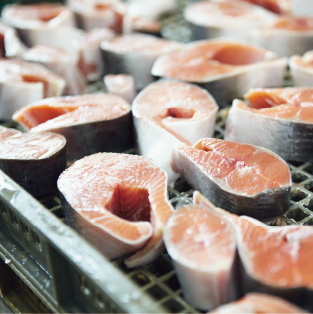

Enduring and facing up to it. That’s the lesson of fishing.
In the aftermath of the disaster that struck his hometown, both Mr. Ogata himself and the company suffered significant damage. All the factories, refrigeration units, and warehouses were completely destroyed, leading to a temporary halt in operations. However, amidst this crisis, there were inquiries from customers asking, “When will the fukahire soup be available again?” Knowing that there were people waiting for their products gave Mr. Ogata the motivation and encouragement to persevere. Urgent requests for ice also came from the fish market, revealing that besides processed foods, the production and sale of ice were also significant aspects of the company’s operations. To meet the expectations of their customers, Mr. Ogata has tirelessly devoted himself to his work, despite facing personal challenges such as being displaced from his home. Currently living in temporary housing in Iwate Prefecture with his wife and father-in-law, he acknowledges the inconveniences but remains determined to endure, stating, “For now, it’s just endurance. Endurance isn’t something I dislike. It’s a lesson I learned from fishing since childhood.” Indeed, Mr. Ogata’s resilience seems to have been honed through his love for fishing, a realization that strikes a chord of understanding.
The joy of creating deliciousness alongside younger on’s energy.
While touring the factory, I came across a process where shiny Pacific saury were being packed into cans. The neatly prepped fresh saury were sliced into pieces about 3cm long and beautifully arranged inside the round cans, resembling the petals of a chrysanthemum flower. “Those are saury that can be eaten as sashimi,” Mr. Ogata explained. Interestingly, this is the hidden hit product of Kesennuma Hotate Co., Ltd., called “Seasoned Saury.” The excitement experienced when eating this canned product is beyond words.
Mr. Ogata, who devotes himself to the company’s future and puts his all into each day, also passionately nurtures young talent. “We need the energy of the youth to support the company and Kesennuma,” he says. “But you know, there’s a lot of endurance involved,” he adds with a smile. To relieve stress from enduring challenges, he heads out for fishing with a rod in hand again this week.
